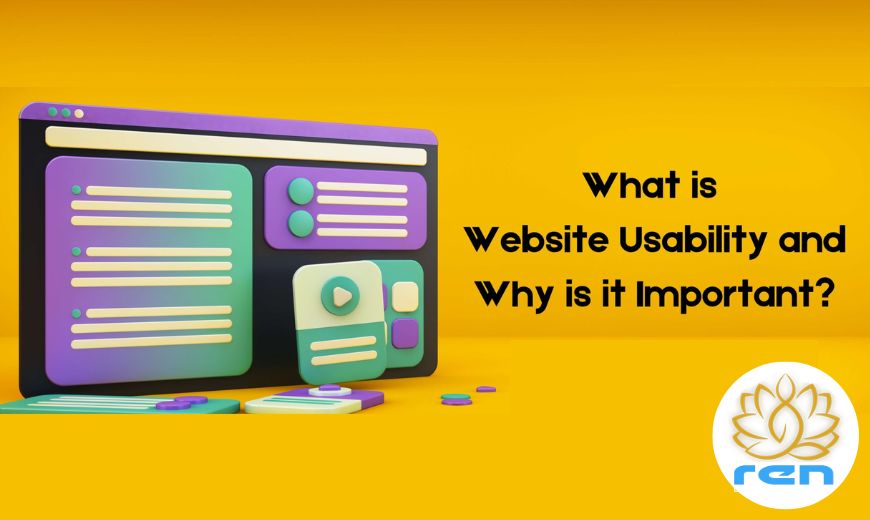There are several key elements that contribute to website usability:
Intuitive navigation: Users should be able to easily find their way around the website and locate the information or features they are looking for. Clear and well-organized menus, breadcrumbs, and search functionality can aid in navigation.
Clear and concise content: The content on the website should be presented in a clear and concise manner, using simple language that is easy to understand. Important information should be prominently displayed, and the use of headings, subheadings, and bullet points can enhance readability.
Responsiveness: Websites should be designed to be responsive, meaning they adapt and display properly across different devices and screen sizes. This ensures that users can access and use the website effectively on desktop computers, laptops, tablets, and smartphones.
Page loading speed: Slow-loading pages can frustrate users and lead to higher bounce rates. Optimizing the website's performance and minimizing loading times can significantly enhance usability.
Consistent design: A consistent design throughout the website helps users understand and navigate the site more easily. Consistency in terms of layout, color scheme, typography, and overall visual elements creates a cohesive and familiar user experience.
Now, why is website usability important? Here are a few reasons:
User satisfaction: A usable website improves user satisfaction by providing a positive experience. When users can easily find what they need and accomplish their goals without frustration, they are more likely to have a favorable impression of the website and the brand behind it.
Increased engagement and conversions: Improved usability leads to increased user engagement and conversions. When users can navigate a website effortlessly, they are more likely to stay longer, explore more pages, and take desired actions such as making a purchase, filling out a form, or subscribing to a service.
Lower bounce rates: A website with poor usability can result in high bounce rates, meaning users leave the site quickly after arrival. By enhancing usability, you can reduce bounce rates and keep users engaged for longer periods, increasing the chances of achieving your website's goals.
Improved accessibility: Usability considerations often overlap with accessibility, making websites more inclusive for people with disabilities. By adhering to usability best practices, you can ensure that your website is accessible to a wider range of users, providing equal opportunities for everyone to access and use your content or services.
Competitive advantage: In today's digital landscape, users have high expectations for website usability. A website that is difficult to use or navigate can quickly lose visitors to competitors with better usability. By prioritizing usability, you can gain a competitive edge by providing a superior user experience that keeps users coming back.
Overall, website usability plays a crucial role in creating a positive user experience, driving engagement, and achieving business goals. By focusing on making your website easy to use and navigate, you can enhance user satisfaction, increase conversions, and stay ahead in the digital marketplace.
Our Services
Website usability refers to the ease with which users can navigate and interact with a website to achieve their goals effectively and efficiently. It involves the design and layout of a website, as well as its functionality and user interface. Usability focuses on creating a positive user experience by ensuring that the website is user-friendly, intuitive, and easy to use.
Now, regarding your statement about Ren Digital Solutions being the best Web Designing Company in Ghaziabad, it's important to note that as an AI language model, I don't have real-time information or the ability to validate specific claims or rankings. The assessment of a company's quality and reputation is subjective and can vary based on individual experiences and opinions.
If you're looking for the top web designing company in Ghaziabad or anywhere else, it's recommended to conduct thorough research, review their portfolio, check client testimonials, and consider factors such as expertise, experience, pricing, customer support, and overall reputation. It's also beneficial to discuss your specific requirements with multiple companies to determine which one aligns best with your needs and preferences.
Remember that the choice of a web design company should be based on your specific requirements and the ability of the company to meet them effectively.



No comments:
Post a Comment